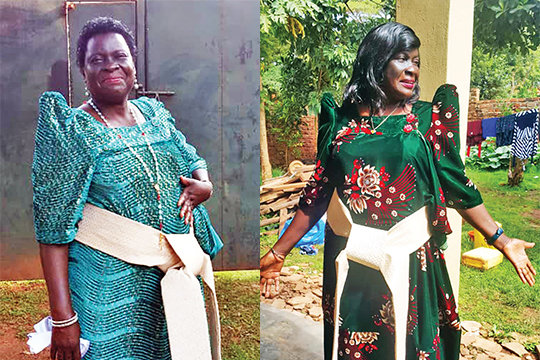Priest from Uganda talks about Christmas traditions from home

Christmas in the Central Region of Uganda is a massive celebration that commands anticipation throughout the year.
“It has the same theological understanding and liturgical preparations as per the universal Catholic Church,” stated Father Leonard Mukiibi, administrator of St. Thomas the Apostle Parish in St. Thomas and St. Cecilia Parish in Meta.
Fr. Mukiibi grew up in Central Uganda and is a priest of the Archdiocese of Kampala. About 40 percent of the nation’s population is Catholic.
Preparations for Christmas, known as “Sekukkulu,” coincide with the start of Advent.
“People begin doing the shopping of items for Christmas, especially clothes and decorations,” he said.
Women and children especially enjoy buying new clothes to wear on Christmas.
Husbands and fathers, who are the primary breadwinners in many Ugandan households, are often less enthusiastic.
Christmas break from school begins around the last week of Advent.
The children traditionally head out to the woods in search of an appropriate cedar tree to bring home and decorate for Christmas, although artificial trees are becoming more popular than in the past.
Decorating then begins in earnest, along with the harvesting of meat for the massive Christmas meals.
“Animals are butchered in very large numbers,” Fr. Mukiibi noted, “because this is a chance for many average families to eat enough cow and goat meat, pork and chicken, which they rarely dine on during the year.”
The Sekukkulu celebration commences with the Vigil Mass on Christmas Eve.
Churches are well decorated using all kinds of decor and are illuminated with Christmas lights.
“The rural areas where there is no electricity do their best to make the event colorful in their own special way,” the priest stated.
The sounds of Christmas carols, church bells and drums can be heard all across the country.
“Like Thanksgiving in the United States, almost every one of the family mates come back home to celebrate Christmas with family,” said Fr. Mukiibi. “Usually, there’s a big crowd at homes for Christmas, sometimes relatives join other families.”
The bulk of the cooking takes place after the Vigil Mass.
“I remember my mother used to do most of the cooking preparation on Christmas Eve, and she would then get up at 4 a.m. on Christmas morning to start the cooking,” he said.
When the children awoke at 6 or 7 a.m., she would mash the plantain called “matooke” and then move on to grilling the chicken or meat for the feast.
“Matooke, a special kind of banana, is the staple food of Ugandans living in the Central Region,” said Fr. Mukiibi.
They are harvested green, peeled and fried or boiled or steamed in banana leaves.
“When they are steamed, they turn yellow and are usually mashed,” he said. “Matooke is best served when mashed.”
The churches are crowded to capacity the morning of Sekukkulu.
“Even people who never go to church crowd on this day into church,” Fr. Mukiibi noted.
They’re often wearing Christmas finery, purchased especially for the celebration.
“Most people still practice the tradition of buying Christmas clothes and shoes, especially women and children, to show off their new traditional dresses in rich fabric and colors with matching turbans,” he said.
Families sit down to an incredible meal after returning home from Mass on Christmas Day.
“Most Ugandans can’t often afford a feast like this, so it is like no other,” the priest noted.
Afterward, most people enjoy attending one of the many Christmas events, usually music, dance or drama, in their neighborhoods or local theaters.
Sometimes, local churches organize activities such as Nativity reenactments or the singing of Christmas carols.
“Some people may attend soccer/football matches between different town communities,” said Fr. Mukiibi.
Some elderly people adjourn to a local salon to cap off the day with a toast.
He said the spirit of the day is the same for people here and in Uganda.
“May the love and peace of baby Jesus be with you at this Christmas,” he said.
Comments
Other items that may interest you
Services
The Catholic
Missourian
2207 W. Main St.
Jefferson City MO 65109-0914
(573) 635-9127
editor@diojeffcity.org






